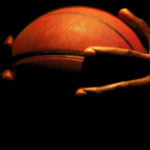 You have to expect things of yourself before you can do them.
You have to expect things of yourself before you can do them.
Michael Jordan
Sports psychology in basketball instructs athletes and coaches on the influence mental toughness and preparation conveys to success on the court. Developing a basketball confidence drastically pushes a player to reach their true physical potential. There are many players who may possess equal physical and fundamental skills, but the differing factor between finding victory or defeat is their belief in their ability to succeed.
Confidence is crucial in all sports, and finding mental toughness starts with fostering a solid belief in one’s ability to achieve. All athletes face adversity, injury, and failures, but the mentally tough athlete does not focus on the negative aspect but rather chooses to create a positive mindset.
Michael Jordan is known for his mental game for basketball as well as his physical prowess on the court, but he also understood how to view any setback he encountered. “I’ve missed more than 9000 shots in my career. I’ve lost almost 300 games. 26 times, I’ve been trusted to take the game winning shot and missed. I’ve failed over and over and over again in my life. And that is why I succeed.”
Creating a strong basketball confidence stems from the ability to properly move on from any negative play or thought, and keeps focus on the next positive opportunity.
Jordan was known for his tremendous work ethic both on the court and during the offseason. He accomplished physical feats during his generation never seen before in the gym, but they only happened because of his willingness to put in the hours of hard work and confidence in his ability. “I’m not out there sweating for three hours every day just to find out what it feels like to sweat.” He knew his time spent practicing not only improved his fundamentals and physical abilities, it also established a basketball confidence willing to take risks and dominate opponents. The long hours of practice created a feeling that he deserved to succeed.
A mentally tough player doesn’t cut corners in practice or go through the motions half- heartedly. Knowing that you worked hard improves self-esteem and confidence grows as a result.
One of the methods that Jordan used to maintain a positive mindset was to maintain a focus in the present. Worrying about a past missed shot, or the what if’s of the future only weaken mental toughness and ability. Mental distractors can appear negative as in a missed shot, but can also be things such as fans, media, or even a great win. However any distractor, no matter where it stems, limits focus and weakens performance.
Jordan offered his advice on keeping focus in the present, “Don’t think about the prize; think about the work. At my basketball camps every year, I award the kids shoes if they make a certain number of free throws or if they complete an around-the-world or something like that. But I always tell them that if they’re thinking about the prize, they should be thinking about the work. Prepare, practice and perfect it. Do the work, and the prizes will come.”
As a player after every practice and game it is important to analyze where your thoughts focused. Were you worried about a missed shot, or celebrating a three pointer? Did you worry about the score or the time or possibility of a loss? Or were you thoroughly focused on the present and playing your very best at that particular moment?
Improving a player’s overall mental game of basketball requires a strong effort, and most importantly perseverance. There is not a one- time exercise that builds confidence in a day, a week or even a year. Mental preparation for the game is a mindset that is just as consistent as stretching before and after practice, and just as vital to success. Confidence is crucial to reaching full potential, and the key is persistently seeking to improve.
Jordan said it best when he advised, “If you quit ONCE it becomes a habit. Never quit!”

[…] See on http://www.sportspsychologybasketball.com […]